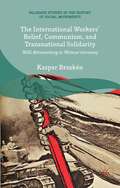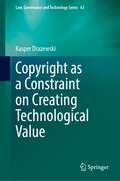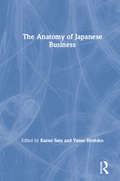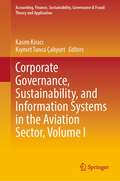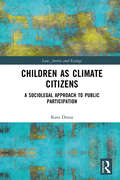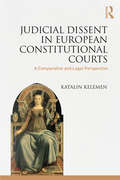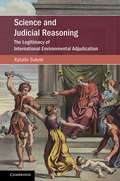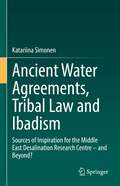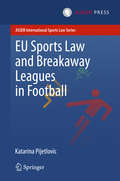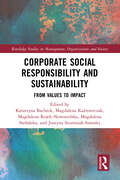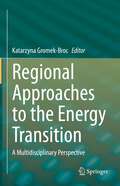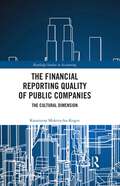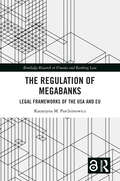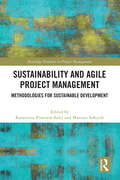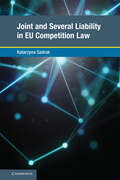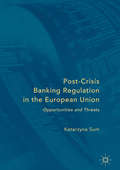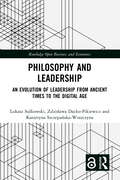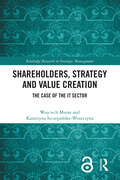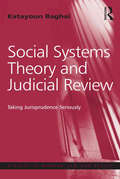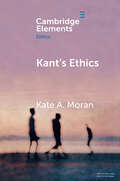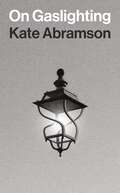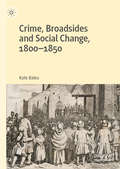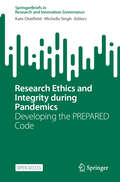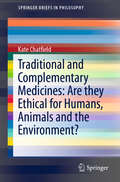- Table View
- List View
The International Workers’ Relief, Communism, and Transnational Solidarity (Palgrave Studies in the History of Social Movements)
by Kasper BraskénThe International Workers’ Relief, Communism, and Transnational Solidarity.
Copyright as a Constraint on Creating Technological Value (Law, Governance and Technology Series #63)
by Kasper DrazewskiCan we regulate something that doesn’t exist yet? Can Europe create its own Silicon Valley? Who gets to create technological value in today’s world? Whatever happened to the once-flourishing idea of rags to riches? Will new and exciting innovations only ever come from big tech companies? Can the EU establish its own flexible framework for boosting innovation, e.g. by facilitating the transformative use of technologies and data?This book seeks to answer these questions by exploring the differences in copyright culture in Europe and the United States, with its flexible fair use framework. The findings are anything but obvious, and decades of case law on both sides of the Atlantic tell a story of judges going to great lengths to deal with new challenges while navigating the imperfections of statutory law – both where it is too broadly formulated and where it is too prescriptive.How can the population’s creative potential best be fostered? What do software innovations have in common with the evolution of living organisms? What are the vulnerabilities of distributed creativity? Answers are sought in the processes that came into being during the early years of the digital revolution and were then forced to take a back seat as control of the means of production was increasingly placed in the hands of tech companies. The findings and insights presented here are highly relevant for today’s digital policymaking. Market concentration processes in innovation haven’t ceased; they are ongoing. And in an age where data-driven services are creating and reinforcing global oligopolies, the question posed by the U.S. Supreme Court in Google v. Oracle is now more relevant than ever: who should hold the keys to digital innovation?
Anatomy of Japanese Business
by Kasuo SatoThis volume collects eleven essays written by Japanese experts on various aspects of Japanese business management and is a sequel to the volume Industry and Business in Japan. It examines the mechanisms for Japan 's phenomenal economic growth since the Second World War by analyzing Japanese management, business groups, production systems and business strategy.
Corporate Governance, Sustainability, and Information Systems in the Aviation Sector, Volume I (Accounting, Finance, Sustainability, Governance & Fraud: Theory and Application)
by Kıymet Tunca Çalıyurt Kasım KiracıThis book delves into corporate governance, sustainability, and information systems related to the aviation sector. Due to globalization and rise in cross-border business, the aviation sector has become an essential means of transport. However, the industry has tremendous impact on social, economic, and natural environments and carries significant risks. The book explores such issues plaguing the aviation sector under three key areas: CSR and sustainability, information systems and risk management, and corporate governance and accountability in the airline industry. The book concludes with an analysis of the impact of COVID-19 crisis on the industry and ways to respond and recover from the effects of the pandemic.
Children as Climate Citizens: A Sociolegal Approach to Public Participation (Law, Justice and Ecology)
by Kata DozsaThis book provides a socio-legal analysis of the public participation of children in climate change matters, whilst developing a range of tools through which their participation can be increased. Climate change affects young people in many ways: causing severe threats to child survival, health and wellbeing, food security and nutrition, and access to education. But this book maintains that children and youth are not to be identified solely with their vulnerability to climate change. They are also key stakeholders in the sustainable implementation of long-term climate change policies, and their inclusion in decision-making processes is a measure of intergenerational equity. Children’s rights law is vague about the right to public participation or the environmental rights of children as such. In response, this book examines the often-informal network of pathways through which the public participation of children takes place: from high level conferences and governance structures to grassroots youth movements and climate change litigation. Exploring the difficulties, but also the opportunities and aspirations of children as citizens challenging the current climate change regime, the book proposes legal and policy tools for children’s participation in global climate change governance, as it outlines a concept of children’s climate citizenship. This book will appeal to scholars in the areas of sociolegal studies, environmental and climate change law, children’s rights and social movements, as well as policy makers and young people with interests in climate activism.
Judicial Dissent in European Constitutional Courts: A Comparative and Legal Perspective
by Katalin KelemenDissent in courts has always existed. It is natural and healthy that judges disagree on legal issues of a certain importance and difficulty. The question is if it is reasonable to conceal dissent. Not every legal system allows judges to explain their disagreement to the public in a separate opinion attached to the judgment of the court. Most constitutional courts do. This book presents a comparative analysis of the practice of judicial dissent in constitutional courts from the perspective of the civil law tradition. It discusses the theoretical background, presents the history of the institution and today’s practice, thus laying down the basis for an accurate consideration of the phenomenon from a legal perspective.
Science and Judicial Reasoning: The Legitimacy of International Environmental Adjudication (Cambridge Studies on Environment, Energy and Natural Resources Governance)
by Katalin SulyokScience, which inevitably underlies environmental disputes, poses significant challenges for the scientifically untrained judges who decide such cases. In addition to disrupting ordinary fact-finding and causal inquiry, science can impact the framing of disputes and the standard of review. Judges must therefore adopt various tools to adjust the level of science allowed to enter their deliberations, which may fundamentally impact the legitimacy of their reasoning. While neglecting or replacing scientific authority can erode the convincing nature of judicial reasoning, the same authority, when treated properly, may lend persuasive force to adjudicatory findings, and buttress the legitimacy of judgments. In this work, Katalin Sulyok surveys the environmental case law of seven major jurisdictions and analyzes framing techniques, evidentiary procedures, causal inquiries and standards of review, offering valuable insight into how judges justify their choices between rival scientific claims in a convincing and legitimate manner.
Ancient Water Agreements, Tribal Law and Ibadism: Sources of Inspiration for the Middle East Desalination Research Centre – and Beyond?
by Katariina SimonenThis book traces the development of Oman's inclusive agreements and highlights their importance for international negotiations, dealing with issues most relevant to humanity's own survival today, nuclear weapons or climate change.In Oman, a historical seafaring nation on the south-eastern corner of the Arabian Peninsula, a culture of agreement that accommodates the interests of everyone has developed around the division of scarce water resources.Life in the arid inland of the Omani Hajar mountains would not have been possible without water. Irrigation channel (falaj) construction is extremely old and skilful therein. Local practices evolved around the division of water and land on the basis of fairness. The community would be best served by inclusion and the avoidance of conflict.A specific Islamic school called Ibadi arrived at Oman early on in the eighth century. Ibadi scholars conserved local practices. Consultation and mediation by sheikhs and the religious leader, Imam, became the law of the land. The Omanis were known as the People of Consultation, Ahl Al Shura. In time, the practice of inclusive agreements would extend far beyond the village level, affecting Oman´s foreign policy under Sultan Qaboos. Oman´s water diplomacy succeeded in uniting the contestants of the Middle East Peace Process in the 1990s to work together on common problems of water desalination.
EU Sports Law and Breakaway Leagues in Football
by Katarina PijetlovicKatarina Pijetlovic is the first author to address the issue of breakaway leagues in football and their treatment under EU law. In this book she guides the reader through EU sports law, the specificities of the sporting industry and the problems and power struggles in European football governance in the context of the breakaway threats by elite clubs. In order to analyse the legality of UEFA clauses that restrict the formation of such breakaway structures, the author first provides a progressive interpretation of the applicable EU sports law and an in-depth analytical review of EU sports cases decided under internal market and competition provisions, including a novel perspective on the UEFA home-grown rule and the Bosman case. Thereafter, she sets out an original theory of convergence between TFEU provisions on competition and the internal market in the light of sporting exceptions. Finally, in applying the legal principles thus outlined Katarina Pijetlovic explores the legality of the restrictive UEFA clauses and the case for the formation of alternative leagues in European football under EU sports law. A number of surprising outcomes emerge from this analytical process. Conversely, she also tests the largely neglected issue of the legality of forming a breakaway league by the European elite football clubs. The systematic way in which the reader is guided through EU sports law and the legal issues under consideration makes the book accessible for EU lawyers as well as non-EU sports lawyers, on both an academic and a practitioner's level. Katarina Pijetlovic holds licentiate and doctoral degrees in EU sports law from the University of Helsinki. The book appears in the ASSER International Sports Law Series, under the editorship of Dr. David McArdle, Prof. Ben Van Rompuy and Marco van der Harst LL. M.
Corporate Social Responsibility and Sustainability: From Values to Impact (Routledge Studies in Management, Organizations and Society)
by Katarzyna BachnikThe aim of this book is to present selected theoretical and practical aspects of corporate social responsibility and sustainability, with particular emphasis on the journey (transition) from values to impact. Values play an important role in business world and they shape the responsible approach of organizations. However, pressing and still unresolved challenges of the present day show evidently that there exist significant discrepancies between organizations declarations on values and their real impact. COVID-19 pandemic, Globalization 4.0, climate catastrophe and challenges emphasized by SDGs, constitute the new environment that contemporary organizations face. In effect business is part of the problem and a solution as well. It is necessary to quickly and effectively push for action taking into account the power of responsible business to co-create human live and environment. Both the theoretical considerations and the practice-based studies presented in this monograph make a significant contribution to the theory and practice of management. The book is an extension and enrichment of the existing knowledge in the field of socially responsible management in organizations. Corporate Social Responsibility and Sustainability will be of value to academics, researchers and advanced students in the fields of business and management, especially those interest in the intersection of management and CSR and sustainability, and those focusing the impact that business activities have on the environment.
Regional Approaches to the Energy Transition: A Multidisciplinary Perspective
by Katarzyna Gromek-BrocThe book"Regional Approaches to the Energy Transition", discusses the key challenges the energy transition is facing at the European and International level. It is an edited collection gathering contributions from the experts in the field bringing together internationally renowned scholars, researchers, EU officials to address the current trends in the energy transition and its dilemmas.The book places the energy transition in a wide interdisciplinary context. It looks at energy policies, legal framework, regional strategies and the difficulties in their implementation. It argues for a regional approach to the energy transition, questioning at the same time the strategies and measures put forward for its realisation. The subject matter is topical, considering recent themes that occupy global and European political agendas.In a nutshell, the volume offers insights into regional regulations, public policies and local practices on the use of clean energy. It looks first at the EU commitment and its initiatives providing some examples from the Member States. Furthermore, it offers a comparative perspective and discusses the different approaches to the energy transition from Latin America, China, Africa and Australia. It covers a wide range of topics such as the EU renewable energy policies, Green Deal and regionalisation, energy auctions in the EU, environment in contemporary constitutionalism, Human Rights considerations, the Scandinavian perspective, practical examples from Italy and Spain. Moreover, it also considers the global context, looking at State and Market in China's coal-to-gas transition, tendencies of legal regulation in the sphere of renewable energy in Russia, the energy transition in Latin-American countries, regional approach to the energy transition and electricity access initiatives in Sub-Saharan Africa, and transnationalism and the regional approach to the energy transition in Australia. The systematisation that this book offers and the exchange of good practices and experiences are useful tools for the key players to seriously engage with a just and sustainable energy transition. The proposed book is a reference and study material for academics and students, but also for the policy makers, officials and practitioners dealing with the energy transition. It provides some answers, potential solutions and alternatives to the main problems that the energy sector is facing worldwide.
The Financial Reporting Quality of Public Companies: The Cultural Dimension (Routledge Studies in Accounting)
by Katarzyna Mokrzycka-KogutThe factors determining the formation of accounting principles in different countries have long been studied. Cultural conditions have been identified as one of the reasons for national variations. This issue is particularly important when there is an effort to harmonise and standardise accounting principles, in order to create a uniform system, which may be adopted globally. This book explores the impact of cultural conditions on the financial reporting quality of public companies preparing financial statements according to International Accounting Standards (IAS) and International Financial Reporting Standards (IFRS). It discusses the main trends in the theory of capital and earnings in the economy. The book focuses on the relationship between the cultural dimensions under analysis, such as power distance, individualism/collectivism, masculinity/feminity, strong uncertainty/weak uncertainty, short/ long time orientation and indulgence/restraint, and the properties of the financial results; persistence, predictive value, accrual adjustments and earnings smoothing. It identifies the determinants - cultural conditions that have a statistically material impact, either positive or negative, on various attributes of the quality of the financial results of public companies. The book contains an up-to-date, in-depth description of the financial statements of public companies, across of variety of countries and sectors. The publication is addressed to researchers and students concerned with the functioning of capital markets and financial reporting quality and those who would like to expand their knowledge in the field of behavioural finance, as well as investors in capital markets.
The Regulation of Megabanks: Legal frameworks of the USA and EU (Routledge Research in Finance and Banking Law)
by Katarzyna ParchimowiczGlobal systemically important banks (G-SIBs) are the largest, most complex and, in the event of their potential failure, most threatening banking institutions in the world. The Global Financial Crisis (GFC) was a turning point for G-SIBs, many of which contributed to the outbreak and severity of this downturn. The unfolding of the GFC also revealed flaws and omissions in the legal framework applying to financial entities. In the context of G-SIBs, it clearly demonstrated that the legal regimes, both in the USA and in the EU, grossly ignored the specific character of these institutions and their systemic importance, complexity, and individualism. As a result of this omission, these megabanks were long treated like any other smaller banking institutions. Since the GFC, legal systems have changed a lot on both sides of the Atlantic, and global and national lawmakers have adopted new rules applying specifically to G-SIBs to reduce their threat to financial stability. This book explores whether the G-SIB-specific regulatory frameworks are adequately tailored to their individualism in order to prevent them from exploiting overly general rules, as they did during the GFC. Analyzing the specific character and individualism of G-SIBs, in relation to their history, normal functioning, as well as their operations during the GFC, this book discusses transformation of banking systems and the challenges and opportunities G-SIBs face, such as Big Tech competitors, climate-related requirements, and the COVID-19 pandemic. Taking a multidisciplinary approach which combines financial aspects of operations of G- SIBs and legal analysis, the book describes G-SIB-oriented legal frameworks of the EU and the USA and assesses whether G-SIB individualism is adequately reflected, analyzing trends in supervisory action when it comes to discretion in the G-SIB context, all in order to contribute to the ongoing discussions about international banking law, its problems, and potential remedies to such persistent flaws.
Sustainability and Agile Project Management: Methodologies for Sustainable Development (ISSN)
by Mariusz Sołtysik Katarzyna Piwowar-SulejSustainable project management is a new school of management thought and a growing trend yet there is a scarcity of research on the linkage between individual PM methodologies and sustainability in projects. This book fills a gap through the theoretical and empirical research on the implications of sustainability in project management and, in particular, agile project management.The book explores three main themes. Firstly, it identifies and assesses the validity of the application of the concepts of sustainable development in the family of agile methodological frameworks. Secondly, the research results are presented as an introduction to further in-depth research on the future relationships between sustainable development and agile project management. Thirdly, the book identifies the competencies that are needed to successful implement projects in the context of sustainable development.Sustainability and Agile Project Management will be of direct appeal to academics and scholars in the management sciences, including project management, corporate governance and human resource management.
Joint and Several Liability in EU Competition Law (Global Competition Law and Economics Policy)
by Katarzyna SadrakContribution claims in antitrust are controversial and under-researched in the legal literature. This book provides the first comprehensive analysis of contribution claims in EU competition law. By drawing on the historical and current practice of EU and national courts, as well as national laws of major EU jurisdictions, it explains contribution claims in antitrust law in concrete and practical terms. It also provides much needed clarity on the relationship between competition law and joint and several liability, as well as guiding those concerned by contribution claims through the issues that are likely to arise. Topics examined include the requirements competition law sets for contribution claims; the criteria for dividing antitrust liability between individual co-infringers; the impact of EU Directive 2014/10; and whether liability sharing agreements can resolve the problems joint and several liability brings to EU competition law.
Post-Crisis Banking Regulation in the European Union
by Katarzyna SumThis book offers holistic, economic analysis of the on-going regulatory reform in the European banking industry. The author addresses the main opportunities and pitfalls related to post-crisis financial regulation, and investigates whether the proposed solutions provide an appropriate response to the problems within the EU's ailing banking sector. The author gives particular focus to the implementation of Basel III, the introduction of the Banking Union, the inclusion of bank governance elements into regulatory frameworks, and the country-specific aspects of regulation at a national level. The discussion builds upon existing literature in the field and takes a novel approach in its examination of banking regulations, their endogeneity and their interactions with bank governance. The book also analyses banking regulation in the EU within theoretical frameworks, as well as by means of empirical exercises. Insights into the theory and practical aspects of banking regulation make this book a valuable read for academics, researchers, students and practitioners alike.
Philosophy and Leadership: An Evolution of Leadership from Ancient Times to the Digital Age (Routledge Open Business and Economics)
by Łukasz Sułkowski Katarzyna Szczepańska-Woszczyna Zdzisława Dacko-PikiewiczPhilosophy and Leadership is an ambitious exploration of leadership's philosophical underpinnings from antiquity to the AI-driven future. The book journeys through history, gleaning insights from eminent philosophers and contextualizing their teachings to leadership.The book's foundational premise lies in the symbiosis of philosophy and leadership. Philosophy provides the "why" that drives the practices and decisions in leadership. This intricate connection is unfolded from the teachings of Confucius on virtue and ethics to the contemporary dialogues of Judith Butler on leadership identity. The book also delves into the evolution of leadership concepts through various eras—medieval times highlighting religious and scholastic perspectives, the Renaissance juxtaposing Machiavellian pragmatism with More's utopian ideals, and the Enlightenment era underscoring the importance of duty, skepticism, and rationality. An exciting aspect of the narrative is the amalgamation of evolution and leadership. By drawing parallels between Darwin's natural selection and leadership dynamics or Bergson's vitalism and intuitive leadership, the authors present a merger of biological evolution with leadership's ever-evolving paradigms. Finally, the concluding chapters reside in envisioning the future and reflect upon the impending synergy between AI and leadership. They emphasize the importance of amalgamating philosophical wisdom with the promises and challenges brought about by AI.The book will guide readers from the philosophical epochs of yore to the AI-predicted leadership paradigms of the future. By intertwining the enduring wisdom of philosophers with the dynamic nature of leadership, this book serves as a beacon for anyone aspiring to lead in any era.
Shareholders, Strategy and Value Creation: The Case of the IT Sector (Routledge Research in Strategic Management)
by Katarzyna Szczepańska-Woszczyna Wojciech MurasThe central task of contemporary strategic management is to look for sources of value and to achieve above- average firm performance. The effective implementation of a value creation strategy requires a comprehensive approach, including the creation of a systemic management structure aimed at increasing company value. The concept of value- based management involves consciously inspiring, undertaking, and implementing value- oriented actions. Value creation takes place at all levels of management and in all organisational units of the company; therefore, the implementation of all management functions should be assigned to this goal. Thus, the role of managers is gaining importance, especially those who are capital- linked to companies, who set goals and verify them by means of informed decisions aimed at maximising value in the long term. The book presents a multidimensional analysis of shareholders’ impact on company value creation. The authors chose the IT sector as the area of study; this sector, being one in which modern technologies are essential, acquires special significance for the global economy. The book features a review of notions and concepts related to the management of company value and methods of measuring it, the shareholder’s impact on the creation of company value, and factors affecting long- term value creation; an analysis of the places of occurrence, power and direction of a shareholder’s impact on building the long- term capacity of an IT sector company for creating the value thereof, as well as the conceptualisation and operationalisation of such impact; an analysis of the role of shareholders in IT sector companies, a profile of shareholder competence which makes the role of a shareholder unique to the company and fulfils the “value- creating owner” postulate; an analysis of the role of hired managers cooperating with the shareholders with an indication of the significance of mutual development and the supplementation of one’s own skills. The book is dedicated to scientists in the field of strategic management, valuebased management, and leadership; shareholders; students of EMBA and MBA programmes; practitioners in strategic management; and current shareholders of modern technology companies (in particular from the IT sector) and future investors, for all of whom it may offer a valuable outlook on the management principles and practices in the sectors, particularly with respect to the long- term creation of company value.
Shareholders, Strategy and Value Creation: The Case of the IT Sector (Routledge Research in Strategic Management)
by Katarzyna Szczepańska-Woszczyna Wojciech MurasThe central task of contemporary strategic management is to look for sources of value and to achieve above- average firm performance. The effective implementation of a value creation strategy requires a comprehensive approach, including the creation of a systemic management structure aimed at increasing company value.The concept of value- based management involves consciously inspiring, undertaking, and implementing value- oriented actions. Value creation takes place at all levels of management and in all organisational units of the company; therefore, the implementation of all management functions should be assigned to this goal. Thus, the role of managers is gaining importance, especially those who are capital- linked to companies, who set goals and verify them by means of informed decisions aimed at maximising value in the long term.The book presents a multidimensional analysis of shareholders’ impact on company value creation. The authors chose the IT sector as the area of study; this sector, being one in which modern technologies are essential, acquires special significance for the global economy.The book features a review of notions and concepts related to the management of company value and methods of measuring it, the shareholder’s impact on the creation of company value, and factors affecting long- term value creation; an analysis of the places of occurrence, power and direction of a shareholder’s impact on building the long- term capacity of an IT sector company for creating the value thereof, as well as the conceptualisation and operationalisation of such impact; an analysis of the role of shareholders in IT sector companies, a profile of shareholder competence which makes the role of a shareholder unique to the company and fulfils the “value- creating owner” postulate; an analysis of the role of hired managers cooperating with the shareholders with an indication of the significance of mutual development and the supplementation of one’s own skills.The book is dedicated to scientists in the field of strategic management, valuebased management, and leadership; shareholders; students of EMBA and MBA programmes; practitioners in strategic management; and current shareholders of modern technology companies (in particular from the IT sector) and future investors, for all of whom it may offer a valuable outlook on the management principles and practices in the sectors, particularly with respect to the long- term creation of company value.The Open Access version of this book, available at www.taylorfrancis.com, has been made available under a Creative Commons Attribution-Non Commercial-No Derivatives (CC-BY-NC-ND) 4.0 International license.
Social Systems Theory and Judicial Review: Taking Jurisprudence Seriously (Studies in Modern Law and Policy)
by Katayoun BaghaiThis book demonstrates the empirical gains and integrative potentials of social systems theory for the sociology of law. Against a backdrop of classical and contemporary sociological debates about law and society, it observes judicial review as an instrument for the self-steering of a functionally differentiated legal system. This allows close investigation of the US Supreme Court’s jurisprudence of rights, both in legal terms and in relation to structural transformations of modern society. The result is a thought-provoking account of conceptual and doctrinal developments concerning racial discrimination, race-based affirmative action, freedom of religion, and prohibition of its establishment, detailing the Court’s response to boundary tensions between functionally differentiated social systems. Preliminary examination of the European Court of Human Rights’ privacy jurisprudence suggests the pertinence of the analytic framework to other rights and jurisdictions. This contribution is particularly timely in the context of increasing appeals to fundamental rights around the world and the growing role of national and international high courts in determining their concrete meanings.
Kant's Ethics (Elements in Ethics)
by Kate A. MoranThe Element provides an overview of Immanuel Kant's arguments regarding the content of the moral law (the categorical imperative), as well as an exposition of his arguments for the bindingness of the moral law for rational agents. The Element also considers common objections to Kant's ethics.
On Gaslighting (Insights: Philosophy in Focus)
by Kate AbramsonA philosopher examines the complicated phenomenon of gaslighting&“Gaslighting&” is suddenly in everyone&’s vocabulary. It&’s written about, talked about, tweeted about, even sung about (in &“Gaslighting&” by The Chicks). It&’s become shorthand for being manipulated by someone who insists that up is down, hot is cold, dark is light—someone who isn&’t just lying about such things, but trying to drive you crazy. The term has its origins in a 1944 film in which a husband does exactly that to his wife, his crazy-making efforts symbolized by the rise and fall of the gaslights in their home. In this timely and provocative book, Kate Abramson examines gaslighting from a philosophical perspective, investigating it as a distinctive moral phenomenon.Gaslighting, Abramson writes, is best understood as a form of interpersonal interaction, a particular way of fundamentally undermining someone. The gaslighter, Abramson argues, aims to make his target experience herself as incapable of reasoning, perceiving, or reacting in ways that would allow her to form appropriate beliefs, perceptions, or emotions in the first place. He seeks not only to induce in her this unmoored sense of herself but also to make it a reality. Using examples and analysis, Abramson gives an account of gaslighting and its immorality, and argues that such a discussion can help us understand other aspects of social life—from racism and sexism to the structure of interpersonal trust.
Crime, Broadsides and Social Change, 1800-1850
by Kate BatesThis book explores the form, function and meaning of crime and execution broadsides printed in nineteenth-century Britain. By presenting a detailed discourse analysis of 650 broadsides printed across Britain between the years 1800-1850, this book provides a unique and alternative interpretation as to their narratives of crime. This criminological interpretation is based upon the social theories of Emile Durkheim, who recognised the higher utility of crime and punishment as being one of social integration and the preservation of moral boundaries. The central aim of this book is to show that broadsides relating to crime and punishment served as a form of moral communication for the masses and that they are examples of how the working class once attempted to bolster a sense of stability and community, during the transitional years of the early nineteenth century, by effectively representing both a consolidation and celebration of their core values and beliefs.
Research Ethics and Integrity During Pandemics: Developing the PREPARED Code (SpringerBriefs in Research and Innovation Governance)
by Kate Chatfield Michelle SinghThis open-access book is an essential read for anyone interested in pandemic preparedness, research governance, and the ethical oversight of research. It examines the development of a pioneering research ethics framework designed for use during pandemics, guiding readers through the careful development of the PREPARED Code, while highlighting the key steps and lessons learned. The book also underscores the importance of supportive measures, such as user-friendly ethics training, to ensure effective implementation. Drawing from these insights, it offers recommendations for others seeking to develop their own clear, engaging, and accessible ethics code.
Traditional and Complementary Medicines: Are they Ethical for Humans, Animals and the Environment? (SpringerBriefs in Philosophy)
by Kate ChatfieldThis book provides a systematic analysis of the ethical implications of traditional and complementary medicine (T&CM), focusing on pragmatic solutions. The author uses a bioethical methodology called the “Ethical Matrix,” to consider the impact of T&CM use for animals and the environment as well as for humans.A systematic search of the literature reveals that most published ethical concerns are related to the safety of T&CM use for humans. However, application of the Ethical Matrix demonstrates that the ethical implications for T&CM use are much broader. In this book, the author analyses the most serious implications, including adverse events related to homeopathy, the use of animals in T&CM products, and the impact of herbal medicine on the environment. Comparisons with the ethical implications of conventional biomedicine help readers to contextualise debate, and highlight aspects that may be unique to T&CM. Globally, many high-level health policy makers promote T&CM as an accessible and affordable healthcare option. However, their use is considered by some to be a waste of resources, unscientific, and unethical. Offering a frank analysis of this largely ignored field of healthcare ethics, this book is both timely and essential. It helps patients, policy makers, practitioners, researchers, and students gain the knowledge they need to make more informed decisions.
